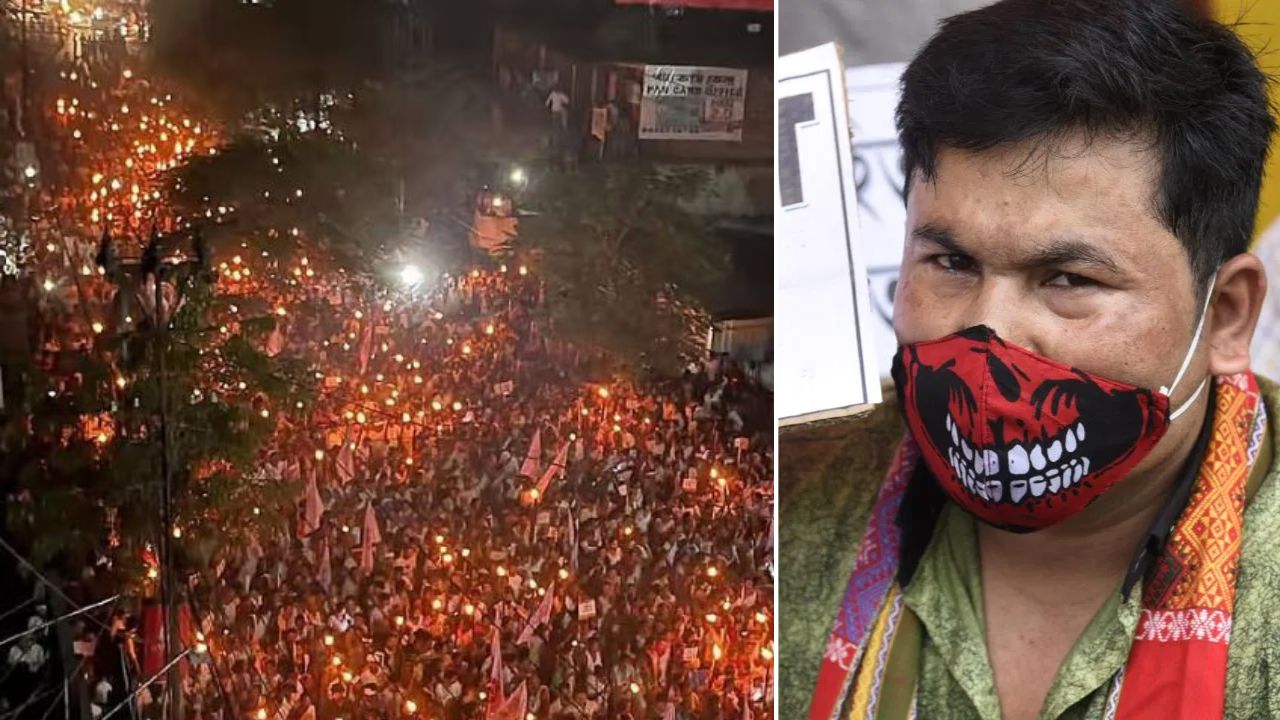 English
English

The Matak Movement is not unique. The Bodo, Karbi, Dimasa, and Tea Tribes have also waged long struggles for their rights. All these movements have championed similar issues of social justice, political representation, and cultural preservation.

Matak community leads protests demanding ST Status
Dispur: In Assam, the Matak community and other tribal groups have begun street protests to press their demands. They are pressuring the government through torchlight processions, rallies, and protests. Their primary demand is Scheduled Tribe (ST) status. This movement has become a challenge for the state government in the electoral environment.
The history of the Matak community is intertwined with the political and cultural landscape of Assam since the 18 century. They reside primarily in the Dibrugarh and Tinsukia districts of Assam. The Matak community established its political identity during the decline of the Ahom Empire. Their customs, language, and culture are influenced by the Mahapurushiya sect. Matak community leaders also played an active role during the British rule and the freedom struggle.
Bangaldesh Violence: 3 killed in protests over assault of tribal girl; Know what happened
Among Assam's diverse ethnic groups, tribal groups have faced socio-economic and political backwardness. Communities such as the Matak, Moran, and Tea Tribes have been demanding ST status for years. Inequalities in land rights, education, and employment are their primary issues. Furthermore, preserving their cultural identity and language is also a major challenge.
In 2019, the central government initiated the process of including six tribal communities in the ST list, including the Mataks. However, a final decision has not yet been made. This has led to growing frustration among the Matak community, and they have taken to the streets to protest the government. They argue that they are socially, economically, and culturally equal to other ST groups.
The granting of ST status is being delayed due to Assam's ethnic balance and political circumstances. There is a fear that including new groups in the ST list will harm existing groups. Furthermore, legal and administrative hurdles pose a significant obstacle. Experts are also debating the issue of identification.
Violent protests after Friday prayers in Bareilly; Police resort to lathicharge
The Matak Movement is not unique. The Bodo, Karbi, Dimasa, and Tea Tribes have also waged long struggles for their rights. All these movements have championed similar issues of social justice, political representation, and cultural preservation.
The demands of the Matak and other tribal communities must be addressed within a democratic and constitutional framework. The government should demonstrate policy courage and grant ST status to these communities. Special attention must be paid to education, health, and cultural preservation. Furthermore, community participation will ensure effective policy formulation and implementation.
No related posts found.